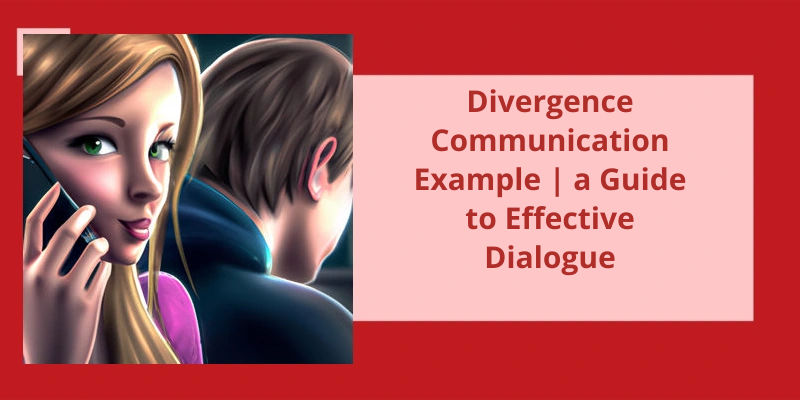In today's digital age, where communication occurs predominantly through text messages and online platforms, it’s unfortunate but not uncommon to encounter individuals who choose to express their negativity, anger, or personal attacks through nasty texts or online messages. As disheartening as it may be, it’s important to remember that you aren’t alone in facing such situations and that there are steps you can take to safeguard your emotional well-being. One of the first and foremost actions you can take is to confide in someone you trust, seeking their support and guidance. Additionally, you’ve the option to ignore the messages, refusing to let them affect your peace of mind. It may also be beneficial to keep a record of these interactions, capturing screenshots or photos, enabling you to present evidence if necessary. Lastly, ensure that you share your personal contact information, such as your phone number or email address, only with close friends and family, minimizing the likelihood of unwanted messages from strangers. Remember, you’ve the power to protect yourself and rise above such negativity.
Is It Harassment if Someone Won’t Stop Texting You?
Is it harassment if someone won’t stop texting you? It’s important to recognize that harassing text messages can cause immense stress and discomfort, which is why it’s crucial to take action to protect yourself. There are some practical steps that you can take to fight back against unwanted harassing text messages.
First and foremost, you should prioritize your safety and well-being. If the messages become threatening or escalate to a point where you fear for your safety, it may be necessary to involve the authorities. Keep a record of each message, noting the date, time, and content. This documentation will be essential if you decide to pursue legal action or obtain a restraining order in the future.
Additionally, it’s crucial to block the senders number on your phone. By doing so, you can prevent further messages from reaching you and establish a boundary between yourself and the harasser. If the harassing messages are coming from different numbers or platforms, consider changing your phone number or deleting certain social media accounts temporarily until the situation is resolved.
If the harassment continues despite your efforts, consider reaching out to a trusted friend, family member, or mentor for support. They can offer guidance and advice on how to handle the situation. In some cases, seeking professional assistance from a therapist or counselor may be beneficial, as they can provide you with coping mechanisms and strategies to navigate the emotional toll that harassment can take.
Documenting the messages, blocking the senders number, seeking support from trusted individuals, and considering professional assistance are all important steps to address the situation. Remember, you’ve the right to feel safe and respected in your interactions, both online and offline.
Unsolicited text messages can be a nuisance and intrusive. To address this issue, it’s important to report the sender by forwarding the messages to 7726 (or “SPAM”). Additionally, campaigns and organizations should respect your privacy and promptly honor any opt-out requests if you reply with the word “STOP.” Taking these steps can help curb the influx of unwanted texts and maintain control over your mobile communication.
What to Do With Unsolicited Text Messages?
Receiving unsolicited text messages can be a frustrating experience. Whether it’s spam, promotional offers, or even nasty texts from someone you know, it’s important to know what steps you can take to address the situation. One effective way to deal with unwanted texts is to report the sender. By forwarding the offending messages to 7726 (or “SPAM”), you can help authorities track down and take action against those responsible for sending unsolicited texts. This not only helps protect you but also contributes to the prevention of such messages reaching others in the future.
In addition to reporting, it’s crucial to assert your right to opt out of these messages. In many countries, campaign senders are required by law to honor opt-out requests. By replying with a simple “STOP,” you can indicate that you no longer wish to receive messages from that specific sender. This action should prompt the campaign to remove you from their database and prevent any further unwanted communication.
It’s important to note that not all unsolicited texts are spam. Sometimes, even people you know may send offensive or nasty messages. In such cases, it’s essential to remain calm and composed. Instead of engaging in an argument, it’s often best to address the situation privately and directly with the sender if you feel comfortable doing so. Clearly communicate your boundaries and express how their words or actions have impacted you. Should the situation persist or escalate, consider involving a trusted authority figure or seeking professional advice on how to handle the situation effectively.
When dealing with unsolicited texts, it can also be helpful to adjust your privacy settings. Review the settings on your messaging apps or contact your mobile service provider to inquire about additional security features. Some apps offer the ability to block specific numbers or set filters for incoming messages. Taking advantage of these features can help you regain control over your messaging experience and minimize unwanted contact.
Remember, what matters most is taking steps to protect your well-being and maintaining your peace of mind. By reporting unsolicited texts, asserting your right to opt out, and managing your privacy settings, you can regain control in these situations. Additionally, it may be beneficial to have open conversations with friends, family, or professionals who can provide guidance and support as you navigate through any emotional or psychological challenges that may arise from dealing with unwanted texts.
Legal Rights and Protections for Individuals Receiving Unsolicited Text Messages
Individuals receiving unsolicited text messages may have legal rights and protections depending on their jurisdiction. In many countries, sending unsolicited text messages, also known as spam texts, is considered illegal.
For instance, in the United States, the Telephone Consumer Protection Act (TCPA) prohibits sending unsolicited text messages without the recipient’s consent. Violators can be subject to fines and the recipient may be entitled to monetary damages.
If you receive a nasty text message or spam text, you can take certain steps to protect yourself:
- Don’t respond: Engaging with the sender may only escalate the situation.
- Block the number: Most smartphones have built-in options to block specific numbers.
- Report the message: Depending on your country, you may be able to report the sender to your mobile service provider or a regulatory agency.
- Document the messages: Take screenshots or save the texts as evidence in case you need it in the future.
- Consult legal advice: If you believe the messages constitute harassment, defamation, or other legal violations, you may want to seek guidance from an attorney who specializes in telecommunications or privacy law.
It’s important to understand your rights and the laws that apply in your specific jurisdiction when dealing with unsolicited or nasty text messages. Consulting legal professionals will ensure you’re taking the appropriate steps to protect yourself and seek recourse if necessary.
Navigating a friendship where a friend constantly bombards you with texts can be challenging. It’s important to address the situation calmly and assertively. Communicate your feelings honestly, setting clear boundaries about your availability. However, if your friend disregards your boundaries and continues to be disrespectful, it may be necessary to take steps such as blocking her from your social media accounts and phone number.
How Do You Deal With a Friend Who Constantly Texts You?
Dealing with a friend who constantly bombards you with text messages can be overwhelming and frustrating. It’s important to address this situation in a mature and assertive manner. Start by letting your friend know that you’re feeling annoyed by her frequent texting and calling. Communicate your boundaries clearly and firmly, explaining that you need some space and time for yourself.
If your friend continues to disregard your boundaries despite your honest communication, it may be necessary to take more drastic measures. Let her know that if she doesn’t comply with the boundaries youve set, you’ll have no choice but to block her temporarily. This step emphasizes that your need for space and respect is non-negotiable.
Blocking her from all social media platforms and your phone number can provide a much-needed break from her constant presence and allow you to regain control over your personal space and time.
While it may seem harsh to take such measures, it’s important to prioritize your own well-being and mental health. It’s not a sign of immaturity on your part, but rather a way to protect yourself from undue stress. Remember, healthy friendships are built on mutual respect, understanding, and consideration. If your friend is unable or unwilling to meet these basic requirements, it may be time to reassess the dynamic of your relationship.
Engaging in harmful behavior through electronic communication, such as sending mean texts, can have serious legal consequences. Threatening to cause bodily harm is unlawful under both state and federal laws, and those convicted may face substantial penalties including imprisonment.
Can You Get in Trouble for Sending Mean Texts?
When it comes to sending mean texts, the repercussions can go beyond hurt feelings. In fact, it’s crucial to recognize that certain actions can have legal consequences. Laws are in place to protect individuals from threats and harassment, and this includes messages sent via electronic communication, such as text messages. In both state and federal jurisdictions, it’s unlawful to threaten to cause bodily harm to someone through text messages or any other form of digital communication.
The severity of the consequences varies depending on the circumstances and jurisdiction involved. In some cases, individuals found guilty of sending mean texts could face several years in prison, as well as fines and other penalties. These legal ramifications serve as a deterrent for such behavior, emphasizing the importance of respecting others boundaries and emotional well-being both online and offline.
It’s crucial to address these issues promptly and appropriately. If you receive a nasty text, it’s important to stay calm and avoid responding impulsively. Instead, consider preserving any evidence of the message, as it may be helpful if you decide to seek legal action. Report the incident to the appropriate authorities, such as local law enforcement or school administrators, if necessary. Additionally, seeking support from friends, family, or professional counselors can help you cope with the emotional distress caused by mean texts.
The severity of the consequences should serve as a reminder to think before sending any hurtful or provocative messages. By promoting respect and empathy, we can create a safer and more inclusive digital environment for everyone.
How Social Media Platforms and Messaging Apps Handle Cases of Cyberbullying and Mean Texts
- Social media platforms and messaging apps have implemented various measures to address cyberbullying and mean texts.
- They use AI algorithms to detect and remove offensive content from their platforms.
- Reporting mechanisms allow users to report instances of cyberbullying and mean texts.
- Enhanced privacy settings empower users to control who can contact them and see their content.
- Real-time monitoring helps identify harmful behavior and prevent it’s dissemination.
- Some platforms notify users about potentially offensive content before publishing it.
- Education initiatives aim to raise awareness about cyberbullying and promote empathy online.
- Collaboration with external organizations and experts helps develop effective prevention strategies.
- Regular policy updates ensure that platforms can adapt to emerging cyberbullying tactics.
- Platforms may temporarily or permanently ban users who repeatedly engage in cyberbullying.
It’s advisable not to respond directly to any unsolicited text messages, especially those that are clearly spam. By replying to these messages, you inadvertently confirm to the sender that your number is active and genuine. This can potentially lead to an increase in spam messages or even expose you to other risks. Therefore, it’s best to avoid engaging with unsolicited texts and take necessary measures to protect yourself against such unwanted communication.
Should You Respond to Unsolicited Text Messages?
They may continue to send you more spam messages or sell your number to other spammers. It’s best to ignore and delete these messages immediately. If the text message contains offensive or abusive content, it’s important to not engage with the sender. Responding to nasty text messages can escalate the situation and potentially lead to more harm. Instead, consider blocking the senders number or reporting the message to your service provider. Engaging in a conversation may only give them the satisfaction they’re looking for. It’s best to take a step back, evaluate the situation, and prioritize your mental well-being. Talk to a trusted friend or family member about the situation. Sharing your experience with someone you trust can help you process your emotions and gain perspective. They may also provide guidance on how to handle the situation effectively. Consider taking a break from your phone or social media altogether. Constant exposure to negative messages can be emotionally draining and impact your overall well-being. Take time to disconnect, engage in activities that bring you joy, and focus on self-care. Remember, you’re in control of what you choose to give your attention to. They can provide guidance on how to protect yourself, gather evidence if necessary, and take necessary legal action. Your safety and well-being should always be your top priority.
How to Recognize and Avoid Phishing Attempts Through Unsolicited Text Messages.
- Be cautious of unsolicited text messages.
- Don’t click on links or download attachments from unknown sources.
- Verify the sender’s identity before sharing personal or financial information.
- Check for grammatical errors or spelling mistakes in the message.
- Don’t provide sensitive information through text messages.
- Use security software and keep it up to date.
- Enable two-factor authentication for added security.
- Be skeptical of messages that create a sense of urgency or fear.
- Report suspicious text messages to your phone carrier or local authorities.
- Educate yourself and stay informed about the latest phishing techniques.
Conclusion
When faced with such situations, it’s essential to remember that we aren’t alone. Sharing the experience with someone else can provide emotional support and guidance on how to navigate through the situation. Additionally, it’s crucial to protect ourselves by ignoring the messages and not engaging in a back-and-forth exchange that may escalate the situation further. Instead, we can choose to preserve evidence of the messages, such as taking a screenshot or photograph, to provide proof if necessary. Lastly, it’s important to be cautious about sharing personal contact information and only provide it to trusted individuals. By taking these steps, we can reclaim our power, maintain our mental well-being, and seek appropriate action if needed.






